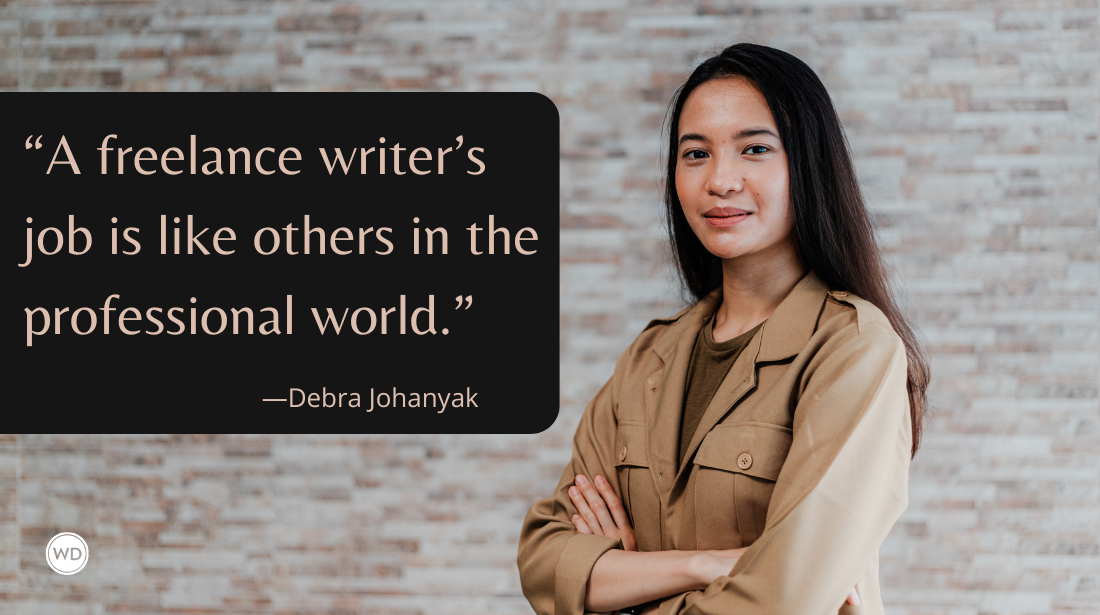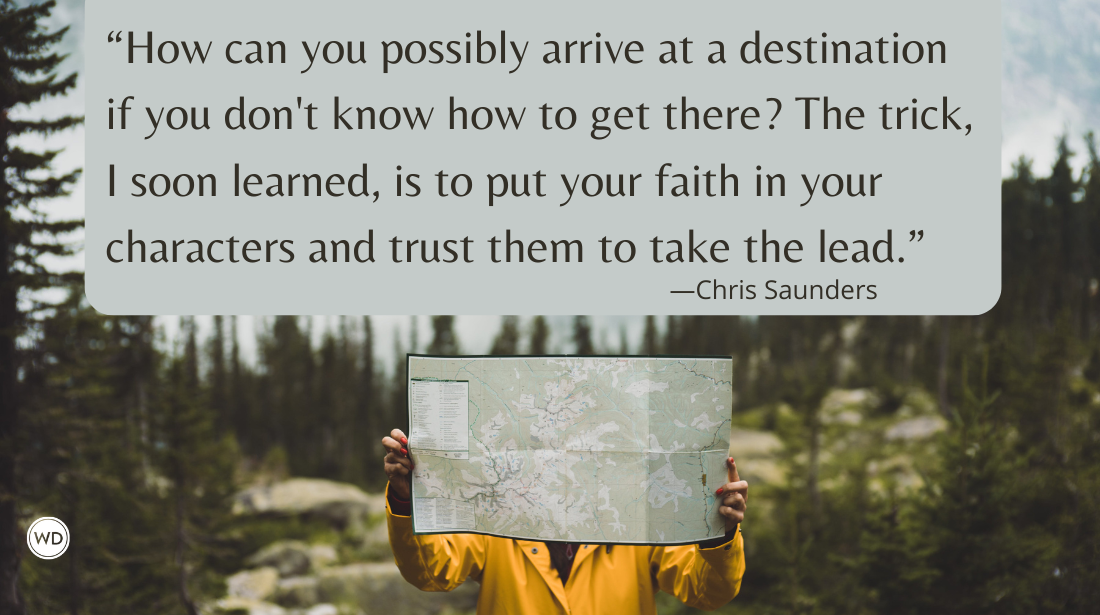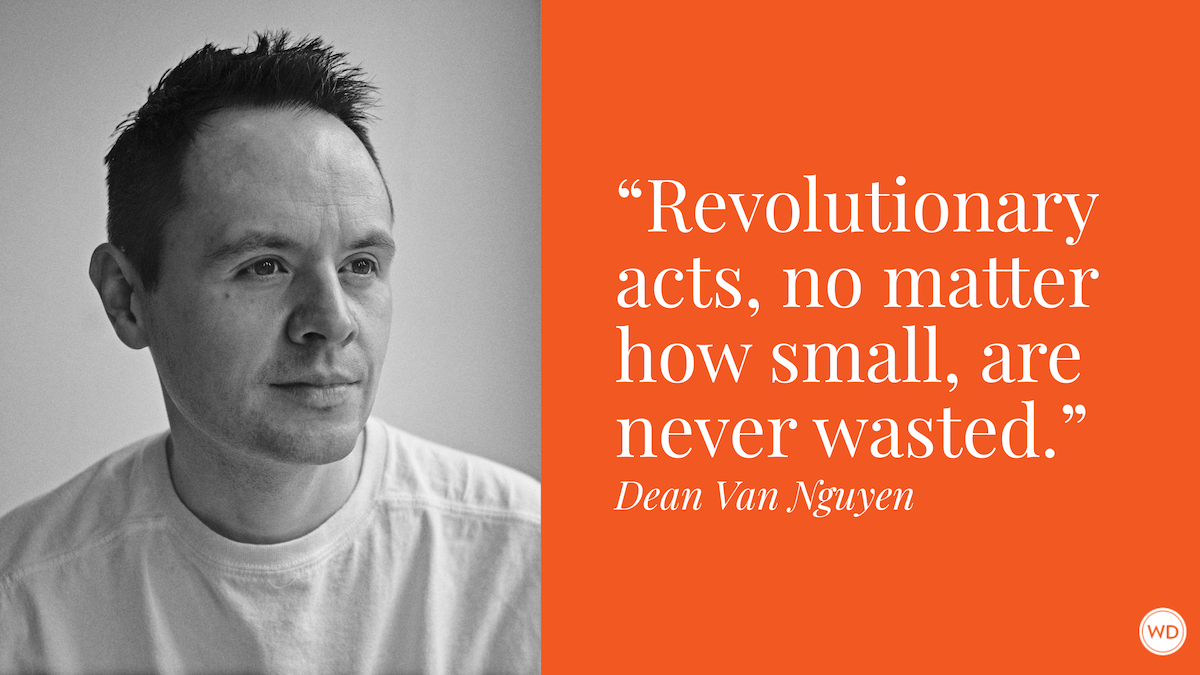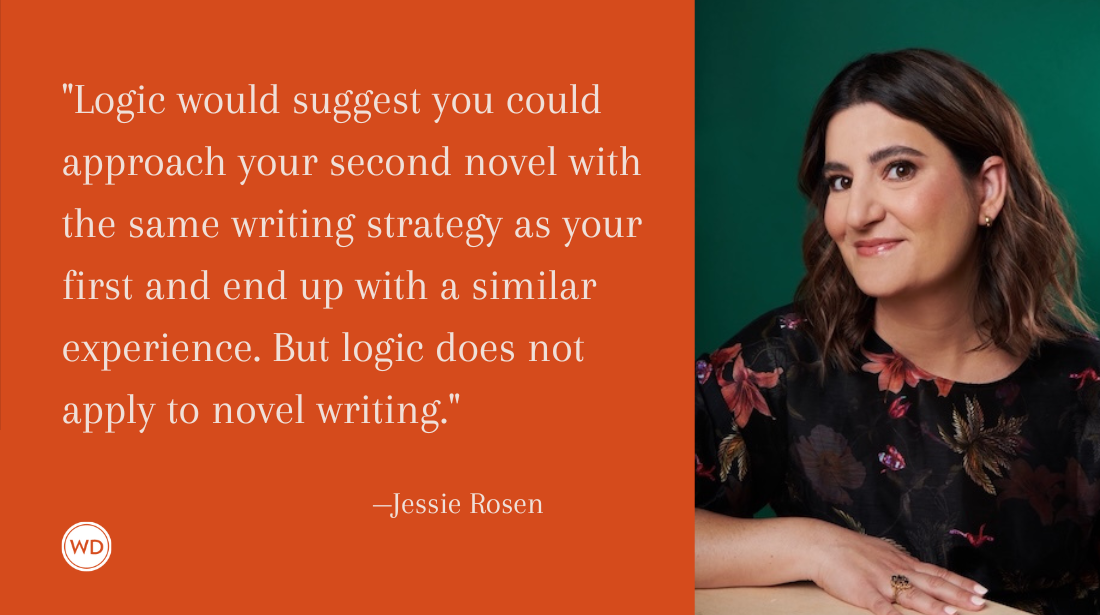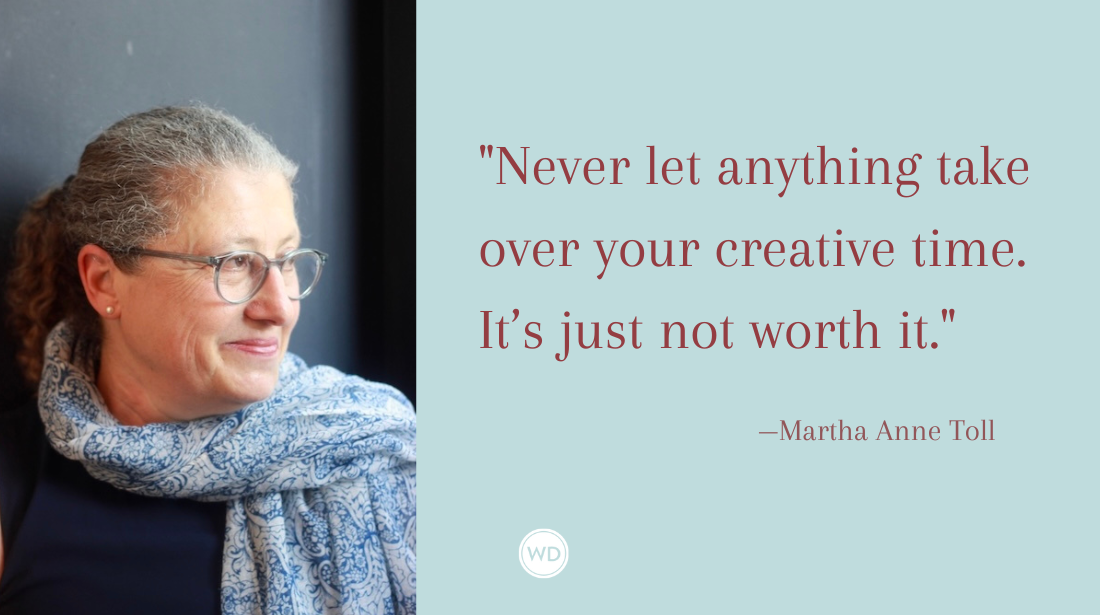How to Find a Direct Line to Your Readers
On tap today we have a Q&A with author and independent publisher Patricia V. Davis, who will be a featured speaker at the Writer’s Digest Conference in NYC. I first…
On tap today we have a Q&A with author and independent publisher Patricia V. Davis, who will be a featured speaker at the Writer's Digest Conference in NYC.
I first met Patricia at a Writer's Digest event, before her first book was released. Since then, her publishing career has steadily grown, culminating in the recent announcement that she's heading up indie publisher Harper Davis.
Given Patricia's experience in the trenches, as well as her background in sales, she offers a unique and valuable viewpoint for anyone looking to build a career as an independent author.
--
An independent press published your memoir, Harlot's Sauce, in late 2008. I'm sure you shouldered most of the marketing and publicity burden for that. What strategies and tactics have proved most effective in getting the word out?
The key for an author hoping to connect with as many readers as possible is that she should look to connect with specific readers who’d be most interested in what she's written. So, what you need to do first is sit down and think about who those readers might be. Which group or groups might enjoy and benefit from reading what you’ve written?
In my case, Harlot’s Sauce was about how being raised first generation Italian-American affected my worldview and attitude about myself, then how these both changed as a result of my marrying a Greek national and moving to Greece with him, in an attempt to save our failing marriage. It’s a tragedy written as a black comedy.
Well, who’d be most intrigued by a story like that?
I contacted Italian-American groups, and philhellenic groups (groups of people who love Greece).
I contacted websites, magazines, blogs that focused on female empowerment and personal growth.
In short, I made a list of the topics I visited in my story, and worked from that, writing articles to appeal to those readers in particular, and posting them on sites that had already cultivated a readership catering to those interests.
My reasoning was that if someone read a blog post or article of mine that appealed to her, she might then be interested in ordering my book.
This was my most effective strategy—it gave me a direct line to my particular readers. And it also prevented me from wasting time contacting (and probably annoying) readers who had no interest in my work.
If you could go back and do it over again, what would you do differently?
I’d do even more research than I did before my book came out, and my research was already extensive.
It's extremely helpful to know every aspect of the publishing process from first draft to finished project—what it takes to get your book into, or blocked from, being in a retail book outlet, how to approach booksellers, which books will be most sought after by agents and publishers, the editing processes, the graphic art of book covers, social networking, press procedures … everything to do with publishing, even if it doesn’t seem to be significant or to have any bearing on your book.
Because it all goes hand in hand, and if you’re not apprised of it, you can end up making some costly mistakes.
Too many authors are in a rush to get their books published, and that’s a recipe for disaster.
Be patient, do the investigating first, whether you’re going to be traditionally or self published. All the information you need is readily available, too, either in book form (Writer's Digest publishes a number of them), or online, like at this very blog, for example.
If you don’t do the research, and instead "learn as you go," it’ll not only cost you sales of your first published work, but might also cost you any interest publishers may have in your future works.
Your second book is just about to be released—The Diva Doctrine: 16 Universal Principles Every Woman Needs to Know. Tell us how that book came about.
Well, it’s a great illustration of my earlier point!
I wrote a blog post for one of my young female readers in response to something she’d written on her own blog. (Yes—it helps if you have a genuine interest in your readers’ lives.)
She was smart, beautiful, and kind, but her blog posts indicated that she just didn’t see herself that way. She suffered the anxieties a number of us suffer when we’re young, and I so identified, because when I was her age, I’d had some of the same worries she wrote about, only to discover as I grew older that I’d stressed over things that weren’t the life-or-death situation I believed them to be.
Ironically, she and I shared a birthday, too—I was turning 52 on the day she was turning 21. So my birthday gift to her was a blog post listing a number of the things I’d learned that I didn’t know when I was 21. I told her in that post that if she remembered these things, they’d save her some valuable time, hopefully helping her to enjoy her youth instead of being crushed by it.
Well, that post got over 200 comments! And then something happened that I didn’t expect—it started appearing everywhere online. Websites like The Frisky and Divine Caroline picked it up.
It came up in my Google Alerts for tweets and retweets.
I honestly don’t know why it hit the nerve it did with so many, especially because I think any fifty-year-old could have written it. But it did, and the next thing I knew, Your Time With Kim Iverson (a super cool radio show about sex and relationships) contacted me to read my blog post on their program.
The day after Kim interviewed me, I had dozens of Facebook friends requests from people who’d heard me on her show. (One man actually wrote down what I read and posted it on his own Facebook page.)
All this hullabaloo piqued the interest of an agent, who asked me if I’d like to write a book that expounded on the points I’d made—a self-empowerment type book. That’s how The Diva Doctrine came about.
How are you preparing for the launch of The Diva Doctrine in terms of marketing/promotion?
??In marketing this second work, I’m involving as many readers of my first work as possible. Since it appeals to the same demographic, why shouldn’t I ask them what they’d like to see discussed in a book like this?
This is why social networking is so powerful. I honestly feel this was a group effort, a book created in part by me and in part by my readers—women I know from Facebook, women who blog, and women with whom I’ve exchanged e-mail addresses.
I asked them: “If you could go back in time and tell your younger self one thing, what would it be?”
The responses I got were enlightening (and a bit heartbreaking). The bond I felt with the women who responded (who were from ages 16 up into their seventies) was authentic and wonderful. I’m now about to make a book trailer using photos, names, and occupations of the women whose responses I’m using.
That’s where I am right now—in a collaborative outreach to my core group of readers and supporters.
But the next part of my marketing plan is to repeat what I discussed in question number one: Jot down everyone else who I think might be interested in this work, and touch base with them, too.
A few years ago, you started Harlot's Sauce Radio, a podcast program and magazine. How has it impacted you and your career?
Well, HS Radio started for an entirely different reason than as a self-marketing technique, believe it or not.
I’ve been sick to death of what’s going on in mainstream media—the negativity, the theatrics, the polarization, and the fact that no matter what station we’re tuned into for our TV news, what news website we’re reading, we’re getting opinions, not facts. Ted Koppel said it best in this article.
We’re also being fed the repulsive outlook from reality shows that most of us are vapid, vain, selfish, and apathetic. I refuse to believe that’s the case, and I think the writers on my podcast/magazine, not the people in those reality shows, are the true examples of who the average human being actually is.
All those on staff or who guest write for HS Radio are of different mindsets, yet they’re smart, open-minded, and compassionate in their response to readers when they disagree, and stick to facts when they’re making their wide range of points.
In short, you can really learn something from reading what they write, even if you don’t necessarily agree with them. Many are novice writers who gain exposure and get to work with editors who help them improve their writing without destroying their spirit or enthusiasm. Some have even gotten gigs after being published by us and I love that—that we’re giving new writers, poets, and even photographers a chance to shine.
We also get some seasoned professionals who guest for us, such as Joyce Maynard and David Corbett, and it’s a thrill for the newer writers to have their work appear alongside these successful authors.
As for the podcasts, I’m lucky because I interview only inspiring people, such as Neil deGrasse Tyson (and you, too, Jane!) who are changing the world for the better, whether they’re doing so quietly or not so quietly.
You just announced your next big endeavor: You'll be serving as president of Harper Davis, the indie press that published your memoir. Describe the business model of Harper Davis and how it differs from other publishers.
Sit back and watch for the answer to that. We're working on two conference formats, which will include a unique way of selling books and add to the bottom line of any booksellers who host events with us. We’re building incentives for authors to decide to publish with us instead of with a bigger publisher, where they might get lost in the avalanche of books. ??
Is Harper Davis now considering unsolicited projects? How many books do you plan to take on in a year? What genres?
Currently, we’ll be taking submissions only through our affiliate, The John Galvis Literary and Media Agency, which in itself is a unique setup. Any of your readers can find submissions guidelines on that website, along with the other services they offer.
That proviso is going to stay in place for the first year, while we find our footing, and then we’ll be taking submissions from other agencies as well.
For 2011, we already have our quota of projects, so we’re looking at projects for 2012, as well as distributors. We’ve got nonfiction so far, and we'll be publishing novels and YA titles as well.
We plan to start small and enhance our tiny list. But rather than put it on a milkshake diet so that it just looks more impressive, we really want it to be impressive. If we love it, and we think the author is forward-thinking enough to fit in with the plans we have for our house, we’ll publish it. ??
You've had experience in so many different aspects of the book industry—acting as salesperson, author and publicist, and now as a publisher. What's the key lesson (or two) of the business that all authors need to learn?
This is a tough industry because everybody—and I do mean everybody—wants to have a book published. I’ll bet there are probably as many writers as there are readers.
For me, that means you enter into this as a profession only if you are truly, madly, deeply in love with it.
Now, if writing is your hobby, go ahead and have fun on your blog, or self-publish a family memoir to leave behind just for your kids. Nothing at all wrong with that. Quite the contrary.
But if you want to write for a living, you have to be thick-skinned, dog-headed, dedicated, and extremely well-organized with your time—because for the first ten years you’re probably going to be writing PLUS working that other job you have, the one that pays your bills.
My thanks to Patricia for taking the time to answer my questions. Be sure to check out Harlot's Sauce, as well as Patricia's memoir. (And if you're at the conference this week, you'll love her session Book or Bestseller?)
Jane Friedman is a full-time entrepreneur (since 2014) and has 20 years of experience in the publishing industry. She is the co-founder of The Hot Sheet, the essential publishing industry newsletter for authors, and is the former publisher of Writer’s Digest. In addition to being a columnist with Publishers Weekly and a professor with The Great Courses, Jane maintains an award-winning blog for writers at JaneFriedman.com. Jane’s newest book is The Business of Being a Writer (University of Chicago Press, 2018).



